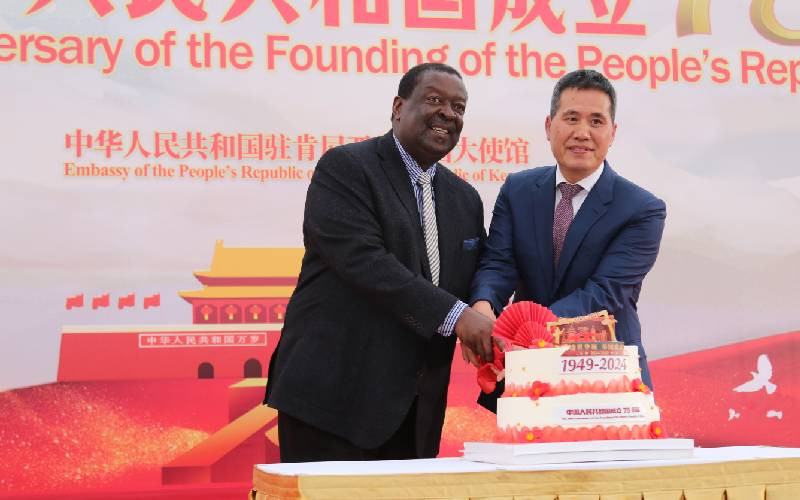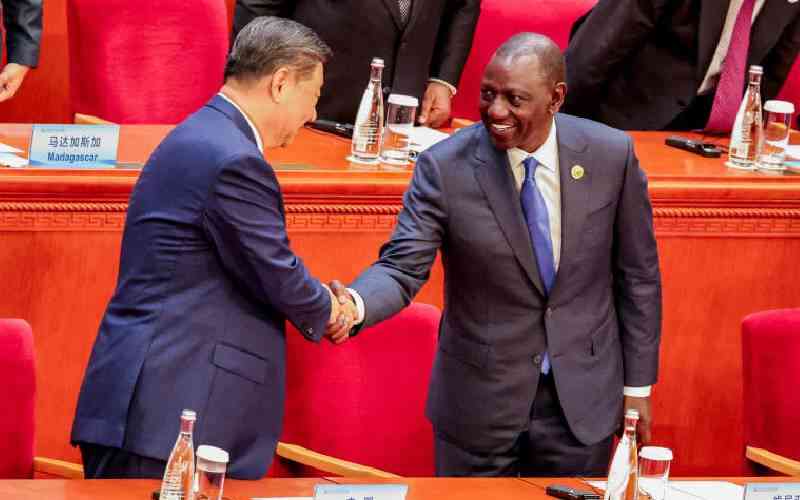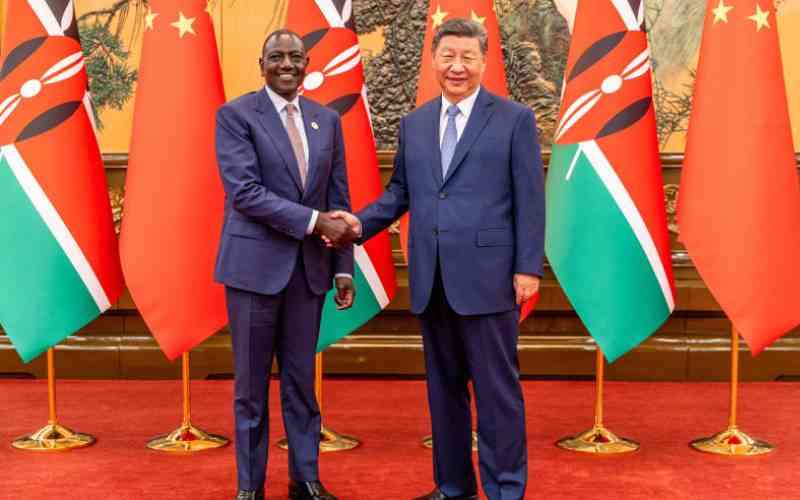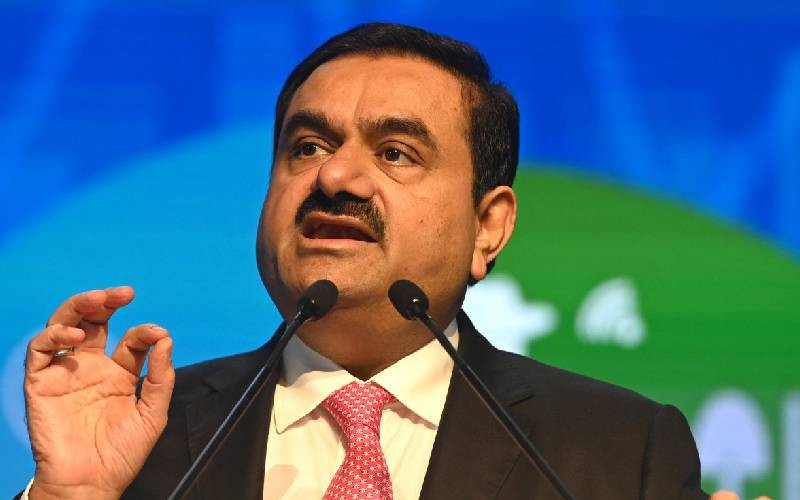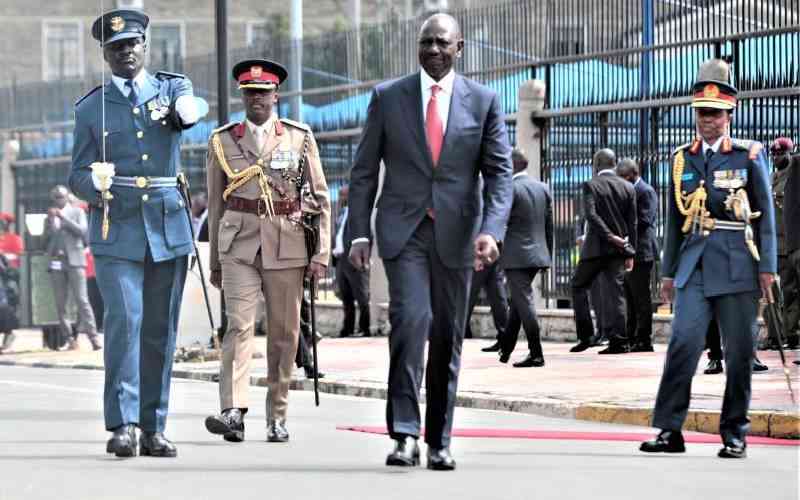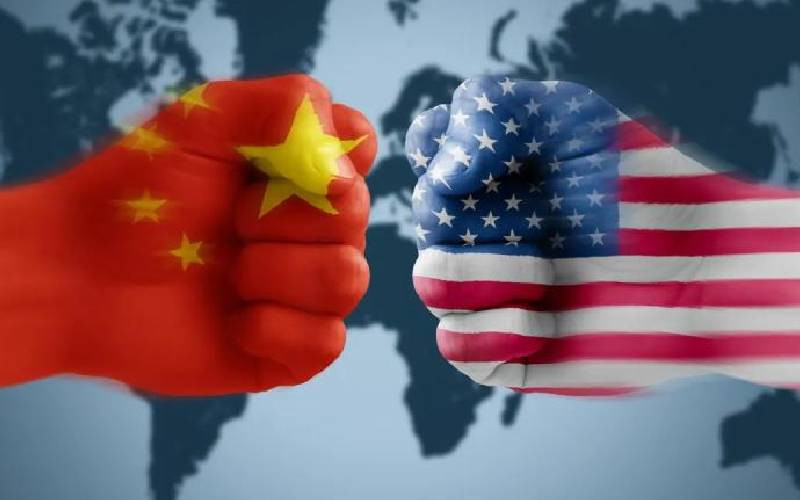
The goodies from the US after our president’s visit have been highly publicised despite being almost overshadowed by the president’s means of travel. How will China, America’s silent competitor for influence in Kenya, react?
Any observer will notice that after our independence, US economic influence in Kenya faded. The UK served as a buffer, expected because of her colonial grip.
A man named Unia, whose family lived in the White Highlands, shared with me an advert that demonstrates the American economic influence. His family business distributed car models that were very American; Chevrolet, Buick, Pontiac, and Oldsmobile. That was in the late 1940s.
Culturally and politically, US influence rose. Our children’s names are more American than Chinese. Our business names are more American than Chinese. I have come across Texas, Oklahoma, NY, California, and other US states as business names in Kenya.
Any business called Beijing, Hainan or any other Chinese town or province? Any street in Kenya named after a Chinese leader? Mao Street?
In the mental space, studying in America is a dream for most Kenyans that should conclude with settling there. The Green Card lottery adds to the mystique of America. Would you participate in a lottery to go and settle in China?
Add the books we read quoting American scholars. The movies and the media we watch have lots of American content. We copied the US political structure with senators and governors, just as Nigeria had done earlier.
Come to President Barack Obama and the Kenyan link to US was immortalised. A sizable Kenyan population lives in the US, unlike in China. This further deepens the US link. I often hear Kenyans talking of their siblings or children in the US, rarely China.
It’s this realisation that may have informed Chinese strategy in engaging Kenya. Do something big that must be noticed by all Kenyans: a port, railway or an expressway. The US has reacted with a highway to the coastal city of Mombasa. We can discuss tolls later.
China has not been silent on intangibles, a silent airlift with Kenyan students going to study in China has been ongoing. Confucius Institute now competes with British or American cultural centres.
The contest between the two powers is interesting. US is moving to Chinese space - the tangibles like roads - while China is moving to American space; the intangibles such as training, schooling, cultural exchange or teaching languages.
Will China one day send its own peace corps like US? We had a few in my village, where are they today?
The contest between the two powers has shifted to our minds with two centres recently launched, one on the study of China and the other on the study of US, both at UoN.
In the same place is a statue of Mahatma Gandhi. Why is Indian influence in Kenya so muted, yet they had a first-mover advantage building the railway? Clearly, the Kenyan mind is the new battleground.
Stay informed. Subscribe to our newsletter
Will the two contestants meet somewhere? It will take time. Each contestant is handicapped in shifting to the new space. Will America build the road as fast as the Chinese? Will charging tolls endear Americans to Kenya?
Will US car brands return? A few Jeeps, Chevrolets and Fords are on the Kenyan roads. Will Toyota yield that space? Will US invest in more mega projects? What in your house is made in America beyond the iPhone? What is made in China?
China’s biggest handicap in moving into ‘American space’ is language. Today many parents are teaching their children English as their first language. When shall our children learn Mandarin as their first language?
Let’s accept a fact; Chinese will not easily mute a century of Anglo-Saxon influence.
American influence in Kenya and beyond has ridden on a secret weapon that the Chinese lack - religion. Noted the beautiful church under construction at Kangemi in Nairobi? Through religion, Americans and the British got into our hearts. What can China use to get into our hearts?
China is also less likely to get to the grassroots through NGOs like Americans did. It might counter-balance that by getting into retail space. Remember the China Square saga? They have opened more branches…
Let’s add that US is more willing to use her diplomatic avenues to further her interests. Who do we see more often in our media, Chinese or USA ambassadors? Chinese by their nature tend to be silent on most issues, like deep waters. Maybe to them, action speaks louder than words.
China got it right in targeting projects that touch the ordinary people, getting a wider appeal. Think of the roads that we use every day. American projects have more appeal to the elites. Think of democracy or human rights.
Where do we go from here?
America has reacted to rising Chinese influence through state visits and some goodies. How will China react? Will China give us more goodies?
Let’s not forget other players in Kenya including South Koreans, Turks, French, Nigerians, Egyptians, and Qataris.
They all want a piece of Kenya. What’s attracting them? What do they see in Kenya that we don’t see ourselves?
More importantly, what is there for Wanjiku and citizens at the bottom of the pyramid from these engagements?
 The Standard Group Plc is a
multi-media organization with investments in media platforms spanning newspaper
print operations, television, radio broadcasting, digital and online services. The
Standard Group is recognized as a leading multi-media house in Kenya with a key
influence in matters of national and international interest.
The Standard Group Plc is a
multi-media organization with investments in media platforms spanning newspaper
print operations, television, radio broadcasting, digital and online services. The
Standard Group is recognized as a leading multi-media house in Kenya with a key
influence in matters of national and international interest.
 The Standard Group Plc is a
multi-media organization with investments in media platforms spanning newspaper
print operations, television, radio broadcasting, digital and online services. The
Standard Group is recognized as a leading multi-media house in Kenya with a key
influence in matters of national and international interest.
The Standard Group Plc is a
multi-media organization with investments in media platforms spanning newspaper
print operations, television, radio broadcasting, digital and online services. The
Standard Group is recognized as a leading multi-media house in Kenya with a key
influence in matters of national and international interest.


